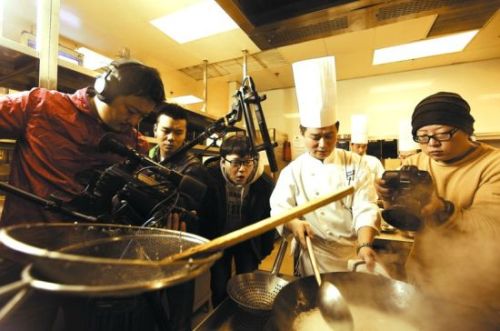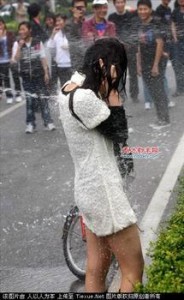Chinese Toddler’s Crotchless Pants So Shocking in America That Woman Calls Police
Posted: 11/6/2014 9:05 amYes, a pair of crotchless pants, also known as ‘open-seat pants’ that have a split in the crotch for toddlers, has become a contentious issue in the United States.
The sight of a toddler wearing them in Monterey Park, California was so shocking to some American onlookers that one American woman reported the run-in to the local police.
When police arrived and learned that the onesie is mainly to used to enable kids to answer nature’s calls easier and faster, the newspaper wrote that “the police couldn’t just believe what they hear.” However, when reached by a Chinese media outlet, the local police authority said they have yet to confirm the authenticity of the report.
The pants, which are ubiquitous in China, remain contentious even here, Nanfang Net reported. The anti open-crotch pants camp argues that the exposure is unhygienic and makes the child vulnerable to accidents such as boiling water and sharp knives.
One commentator named Daniel wrote, “wearing open-seat pants will indulge the kids to do their business anytime and anywhere they want.” Others argued that this outfit might draw pedophiles. Another commenter said, “there are so many perverts out there. Once the kids get hurt, you won’t even have time to cry.”
Those who are defensive about the look link it to Chinese culture (though our own research can’t find any particular cultural connection) and threw barbs at “narrow-minded” Americans. A user called Eternal commented, “For those who run naked for some holidays, what grounds you have to criticise us? Open-seat pants are a part of Chinese culture. What the heck do you know?”
Others even argued from an environmental point of view. 知雨 wrote, “wearing open-seat pants spared the use of so many pampers. (Do you know) how much waste we managed to save? Support tradition.”
Photos: Chaos taipei, Zhihuimami
































